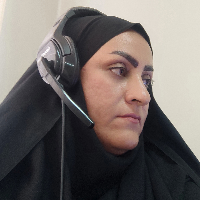he Divine Speech According to Allama Khafrī and Muḥaqqiq Dawwānī
Author(s):
Article Type:
Research/Original Article (دارای رتبه معتبر)
Abstract:
The Divine speech has been one of the important and basic issues in Kalam which, in fact, was the starting point of this knowledge. What provides the ground for conflicting opinions in this issue is the explanation of the truth of the Divine word. Although the preamble of the disputes of the philosophers and theologians is related to the temporality or eternity of the Divine word, the interpretation of its truth and the quality of its belonging is considered to be the most controversial subject of conflict. Allama Khafrī maintains that the word is a homonym and considers two meanings for it, according to one meaning, God’s word is eternal and according to the other, it is temporal; word as “speech” is eternal and as “what one speaks through” is temporal. The true Divine word can be considered eternal in three ways: by using the relationship between Divine knowledge and word, the true speech will be identical to the undifferentiated essential knowledge, and as a result, it will be eternal. According to the second justification, speech is a kind of knowledge transmission and, knowledge is also a kind of speech, in turn; therefore, this theory defends the unity of knowledge and speech and the sameness of their attributes. The third justification interprets true speech as power, that is the Necessary’s essential power to inspiration, and by using this connection and considering the eternity of power, it considers speech to be eternal, as well. Allama Dawwānī, unlike many of the early philosophers, considers the Divine word to be the source of creation of the words and contrary to Divine knowledge. In his view, the truth of the Necessary’s word is the origin of the compilation of letters and sounds that have been realized in the Divine eternal knowledge and this compilation was made without any order or sequence. He claims that so far, no sect or group has presented such an effective point of view like his and he is the originator of this viewpoint. Reviewing the views of Mu‘tazila, Ash‘arīyya, Karrāmiyya, Ḥashwiyya, and the philosophers, he considers his opinion to be different from all.
Keywords:
Language:
Persian
Published:
Islamic Philosophy & Theology, Volume:54 Issue: 1, 2023
Pages:
139 to 157
https://magiran.com/p2537070
مقالات دیگری از این نویسنده (گان)
-
Explaining divine knowledge from the perspective of Allameh Khafri and Mulla Sadra
*, Mahdi Dehbashi
Aghl va Deen,



